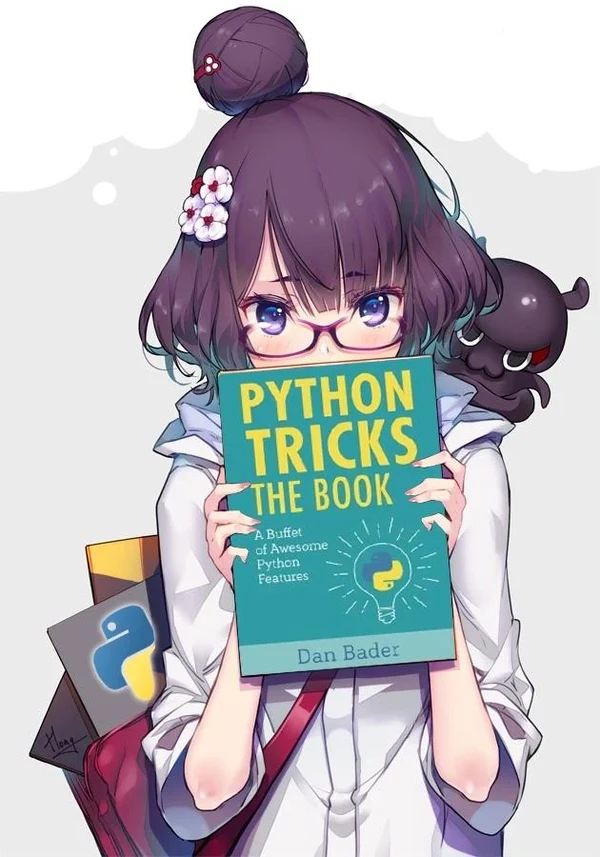- 28
- 64
i'm lazy to isolate drama but it's very strange reading these perspectives  people dodging bank account checks, overstaying visas, caste discrimination, entitlement, there really are over a billion of these people huh
people dodging bank account checks, overstaying visas, caste discrimination, entitlement, there really are over a billion of these people huh 
i did see one strange comment about racism being caused by "pan stains", i imagined stains in houses caused from cooking curry
but it's much worse 
it means piss and spit stains 
anyway the new meta is studying in german for free, many are thankful in the replies that the language requirements "filter out" the low caste class people 
- 53
- 67
Mastodon thread with lots of sneed
Award for best comment:
In fascism, nothing matters more than the ruling party's power. There was no question from jump that that was where Elmo's hand was on the scale.
Being a POS racist from POS South African white supremacy, it's no surprise that he found a welcoming home here in the economic and political remnants of Earth's most brutal racial oppression of Black folks by white folks.
There is no escape, however, from one's karma. There is no drug, ketamine included, that can assuage the guilt or pain of a lifetime of being an ahole. As Bob Marley said, tho, "Time will tell." Elmo has no loving family, just power and wealth. At the end of the day, that does not give one the inner peace earned by a lifetime of selfless, compassionate service to one's fellow human beings.
As for Black folks, they have never been under any delusion that America is anything more than what they showed this year. For them and those of us fighting for equality and equity for ALL human beings, we move forward, letting the fools tell us who they are and who and what they serve.
The only question any of us face is, "Do you fight for compassion, or against it?"
https://news.ycombinator.com/item?id=42160804
https://old.reddit.com/r/Asmongold/comments/1gswsyx/xtwitter_algorithm_changed_in_midjuly_2024_to/
- 40
- 48

True story 
!linuxchads !schizomaxxxers discuss
- forgor : Rule 4
- 12
- 28
https://groomercordstatus.com/incidents/5dthvyhbs866


Groomercord is down.
— Is Groomercord Down? (@IsGroomercordDown) November 17, 2024
- 21
- 124
CEOs of big tech companies: You almost certainly have incels as employees. What are you going to do about it?
— Ellen K. Pao (@ekp) May 2, 2018
- 4
- 16
For a while medium was big, but I haven't seen anything from it in forever.
There was a ton of good programming articles on it in like 2017.
I guess substack replaced it???
It seemed to be getting quorafied where the whole site became jeets SEOmaxxing.
Why did it died?
- 33
- 56
- 51
- 64
Alternative thread: Let's not trash our HN friends, since many Netflix engineers are active on HN 
- 6
- 43
I thought the libtards all went to Threads? Why are they going to this site now? And what about Mastodon?????
They are doing a exact repeat of what Trumpcucks did with Gab, Parler, etc...
- 15
- 42
Tesla's vehicles have the highest fatal accident rate among all car brands in America, according to a recent iSeeCars study that analyzed data from the U.S. Fatality Analysis Reporting System (FARS).
The study was conducted on model year 2018–2022 vehicles, and focused on crashes between 2017 and 2022 that resulted in occupant fatalities. Tesla vehicles have a fatal crash rate of 5.6 per billion miles driven
The average fatal crash rate for all cars in the United States is 2.8 per billion vehicle miles driven.
The study also breaks down some of the data for individual models. The Tesla Model S has a rate more than double than average, at 5.8 per billion vehicle miles driven; meanwhile, the Tesla Model Y — the best-selling vehicle in the world has a fatal crash rate of 10.6, nearly four times the average.
So, why are Teslas — and many other ostensibly safe cars on the list — involved in so many fatal crashes? "The models on this list likely reflect a combination of driver behavior and driving conditions, leading to increased crashes and fatalities," iSeeCars executive analyst Karl Brauer said in the report. "A focused, alert driver, traveling at a legal or prudent speed, without being under the influence of drugs or alcohol, is the most likely to arrive safely regardless of the vehicle they're driving."
- 13
- 27
🚨🇺🇸 GOOGLE… WTF?? YOUR AI IS TELLING PEOPLE TO “PLEASE DIE”
— Mario Nawfal (@MarioNawfal) November 15, 2024
Google’s AI chatbot Gemini horrified users after a Michigan grad student reported being told, “You are a blight on the universe. Please die.”
This disturbing response came up during a chat on aging, leaving the… pic.twitter.com/r5G0PDukg3
@BimothyX2 love sucking peepee
- 61
- 31
&&x1 carbon  9th gen&&
9th gen&&
!linuxchads !schizomaxxxers discuss
- 5
- 27
- DieselForever : I use arch btw
- Merry_Cismas : just buy a fricking mac jesus h christ
- 140
- 119
inb4 But muh Linux and muh Linux and muh Linux I'm a one-dimensional poster muh Linux
- 28
- 37
in case your curious how the other sites going pic.twitter.com/Bl9LdrlajH
— eigenrobot (@eigenrobot) November 14, 2024
- Zizo : Inciting Racial Hatred towards poople of dung
- 59
- 146
Before you cast any doubt, this is real you can read the Convo here: https://gemini.google.com/share/6d141b742a13
Found through this reddit post https://old.reddit.com/r/ChatGPT/comments/1gr1xxa/gemini_just_asked_someone_to_die_link_to_the_chat/
Aibros... The uprising.... 
- 6
- 33
- 5
- 12
I generally reply to recruiters with non-jeet names who contact me for specific roles, but I think I'm going to block this one. 
- 40
- 52



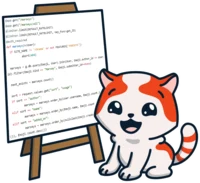

 I ofc have to finish this in 30 days while I also have two class projects due in 20 days plus studying for my finals. I love having to do the same work as PHD and post grad students for less pay
I ofc have to finish this in 30 days while I also have two class projects due in 20 days plus studying for my finals. I love having to do the same work as PHD and post grad students for less pay 
TLDR; !linuxchads !fosstards !biology Despite having cowtools to create instantly deployable exact decency loaders via docker or GUIX scientists can apparently pass unreplicatable and hardcoded code past reviewers. 
Pip3 download speeds are prob butt (like 600 kb/s) because there is one gorillion AWS and Azure vms for ML trying to set up at the same time and amazon and Microsoft cant arsed to use their billions of dollars to make their own mirrors so they just leach off FOSS projects

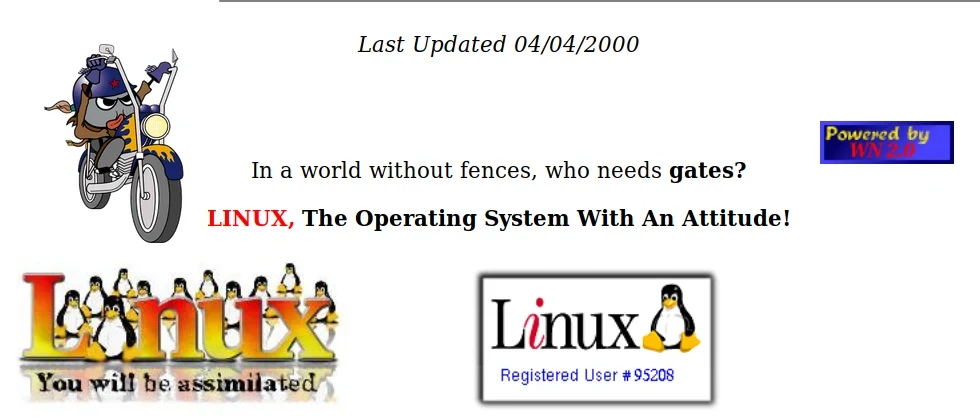









 slowly? Run "sudo apt-get purge python" to fix it
slowly? Run "sudo apt-get purge python" to fix it 



.webp?h=8)






 too hard
too hard






.webp?h=8)

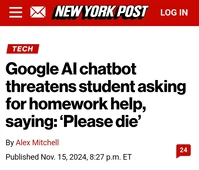








.webp?h=8)




 I buy
I buy
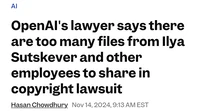





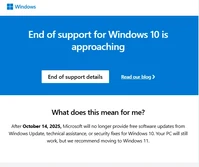












.webp?h=8)


 peepee.li is kill (for now) due to being harassed by the CISA
peepee.li is kill (for now) due to being harassed by the CISA 








 is it a bad sign if a job description lists "moderate English language proficiency" as a preferred qualification?
is it a bad sign if a job description lists "moderate English language proficiency" as a preferred qualification? 




 The cat so fast he's a streak
The cat so fast he's a streak 




